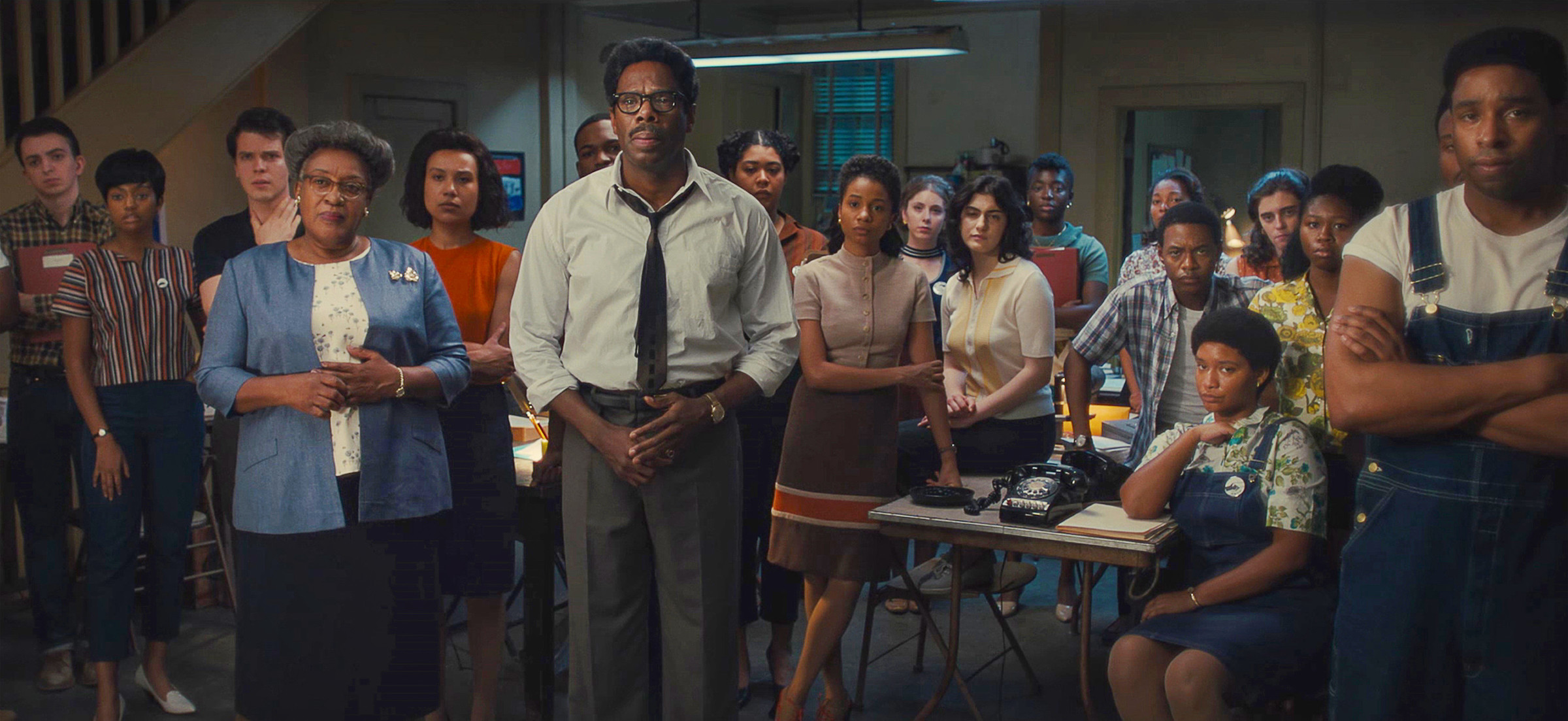
Joyce Ladner feels like she’s at the 1963 March on Washington for Jobs and Freedom again. Recounting the experience to TIME in November, the 80-year-old civil rights activist says that looking out from the stage at the Lincoln Memorial and seeing a crowd of 250,000 people is her greatest memory. It was indescribable.
The March on Washington was the largest peaceful protest in U.S. history until that point. The fact that it was nonviolent (over a thousand Black police officers were present as peacekeepers without their guns) can be attributed to its unsung architect, Bayard Rustin. A slice of his story, set over the frenetic months leading up to the march, is finally being told to a broader audience in Rustin, the Netflix drama streaming on Nov. 17.
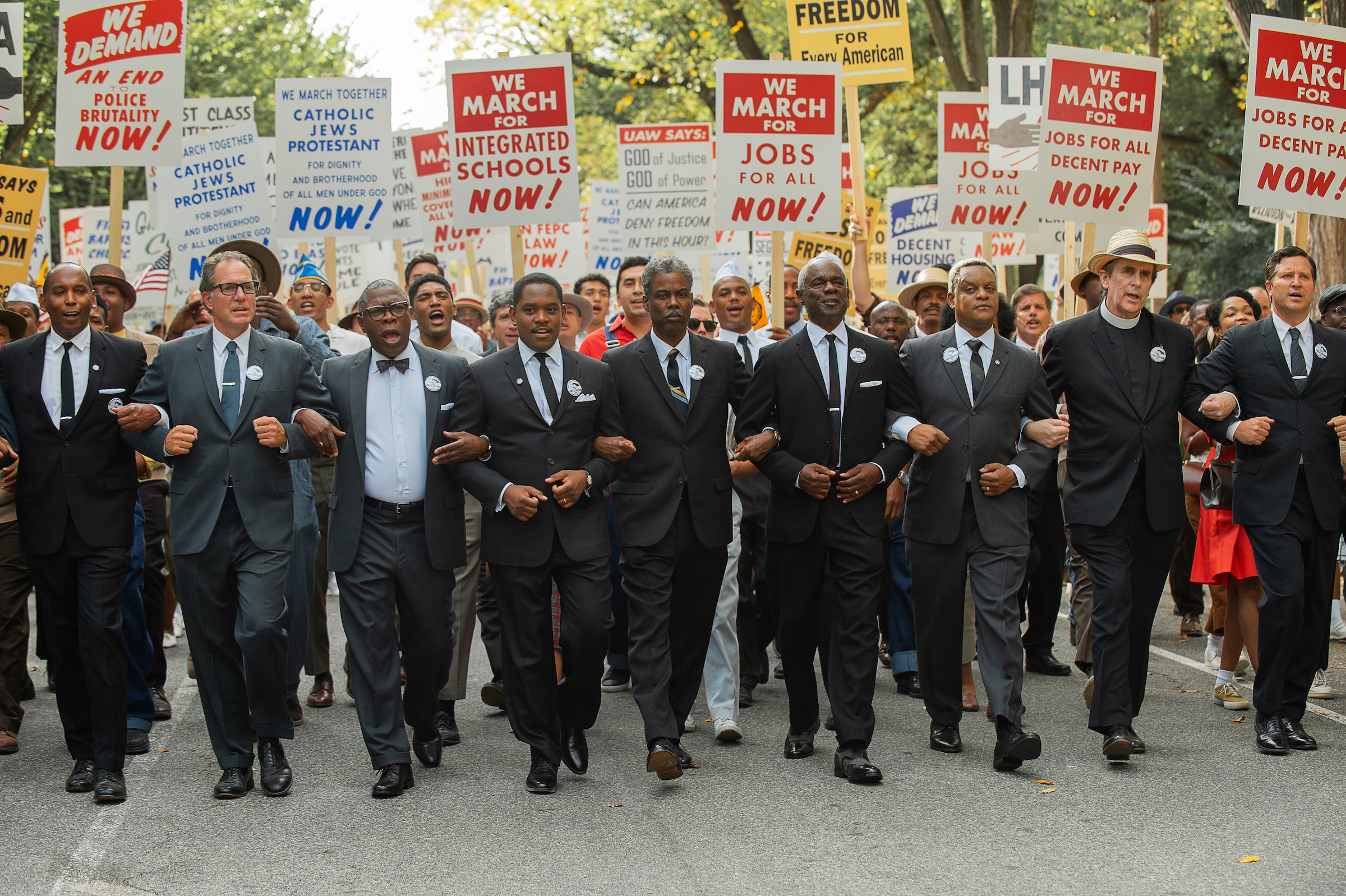
While the march is best known for hosting Martin Luther King, Jr.’s rousing “I Have a Dream Speech”—and for paving the way for the 1964 Civil Rights Act—it was Rustin who made it happen, rallying young people and building a grassroots operation in two months. But Rustin was openly gay at a time when it was still taboo—especially to civil rights leaders who worried that Rustin’s flamboyance would detract from the movement.
When Roy Wilkins, then the executive secretary of the National Association for the Advancement of Colored People (NAACP), removed Rustin as the director of the march, union organizer A. Philip Randolph became the director instead. He promptly reappointed Rustin as the deputy director, putting him back in charge in all ways but nominal.
In Sept. 1963, the pair would be featured on the cover of Life Magazine with the caption “The Leaders: Randolph and Rustin.” The magazine called the march “an astonishingly well-executed product of leadership.” “It came off without a hitch,” it said, “in almost beatific calm.” But Rustin would then fade from history books. Colman Domingo, who plays him in the movie, told Netflix’s Queue magazine that he thinks he briefly learned about Rustin in his junior year at Temple University, but he can’t quite remember.
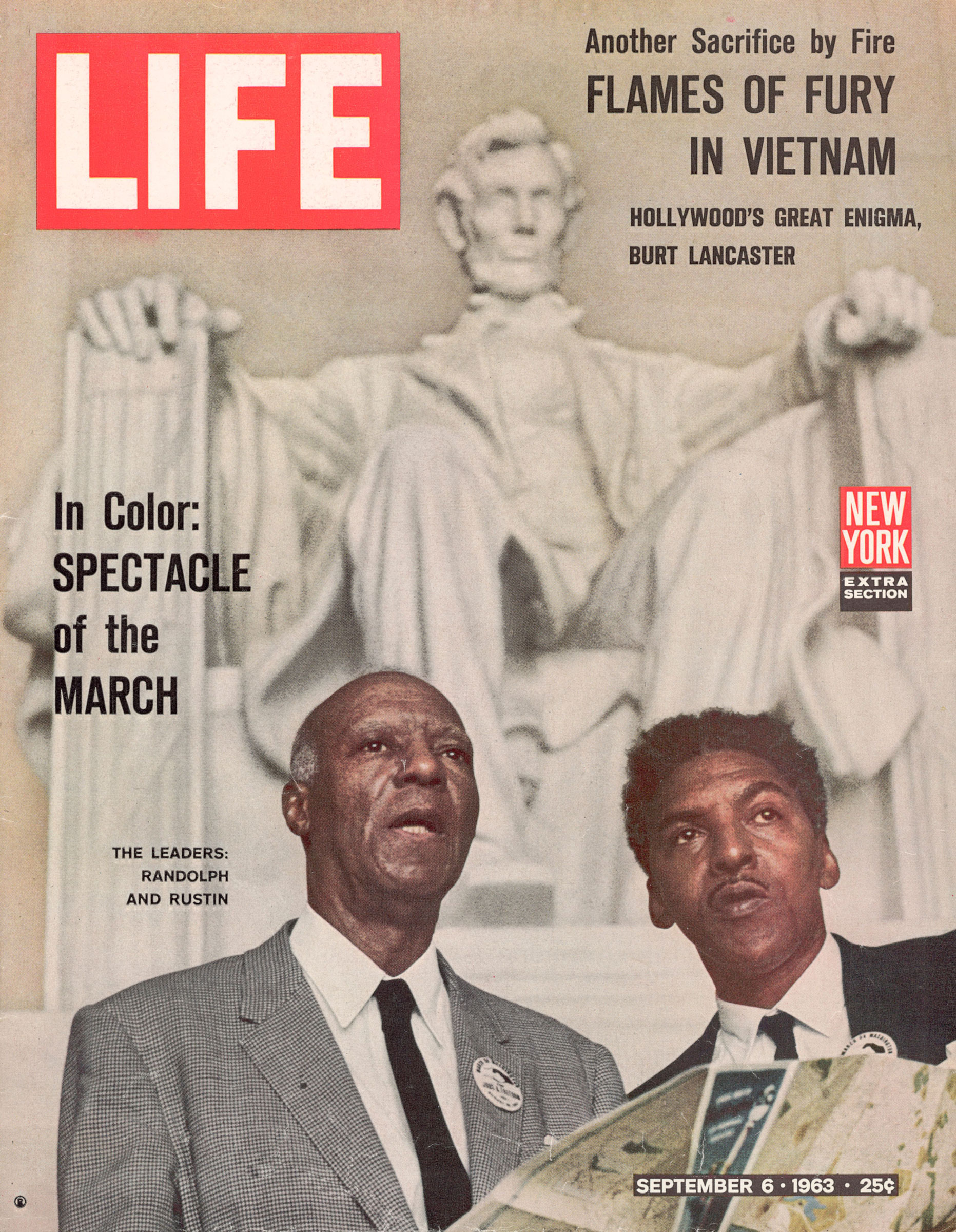
In the summer of 1963, Rustin got to organizing, setting up shop in a run-down Harlem rowhouse, Utopia Neighborhood Club House. There, he delegated responsibilities to an army of young people.
Joyce Ladner and 86-year-old Eleanor Holmes Norton—who is now a U.S. congresswoman from Washington, D.C.—were members of the Student Nonviolent Coordinating Committee (SNCC) at the time. Ladner was going into her senior year at Tougaloo College and Norton was a student at Yale Law School. The two of them, along with Ladner’s sister Dorie, stayed at the apartment of transportation director Rachelle Horowitz in Chelsea.
Both are portrayed in Rustin, by Jules Latimer and Ayana Workman, respectively. (Ladner visited the set during the filming of the march itself.) They spoke to what it was like to be at the march, the exhaustive work that went into planning it, and Rustin’s legacy.
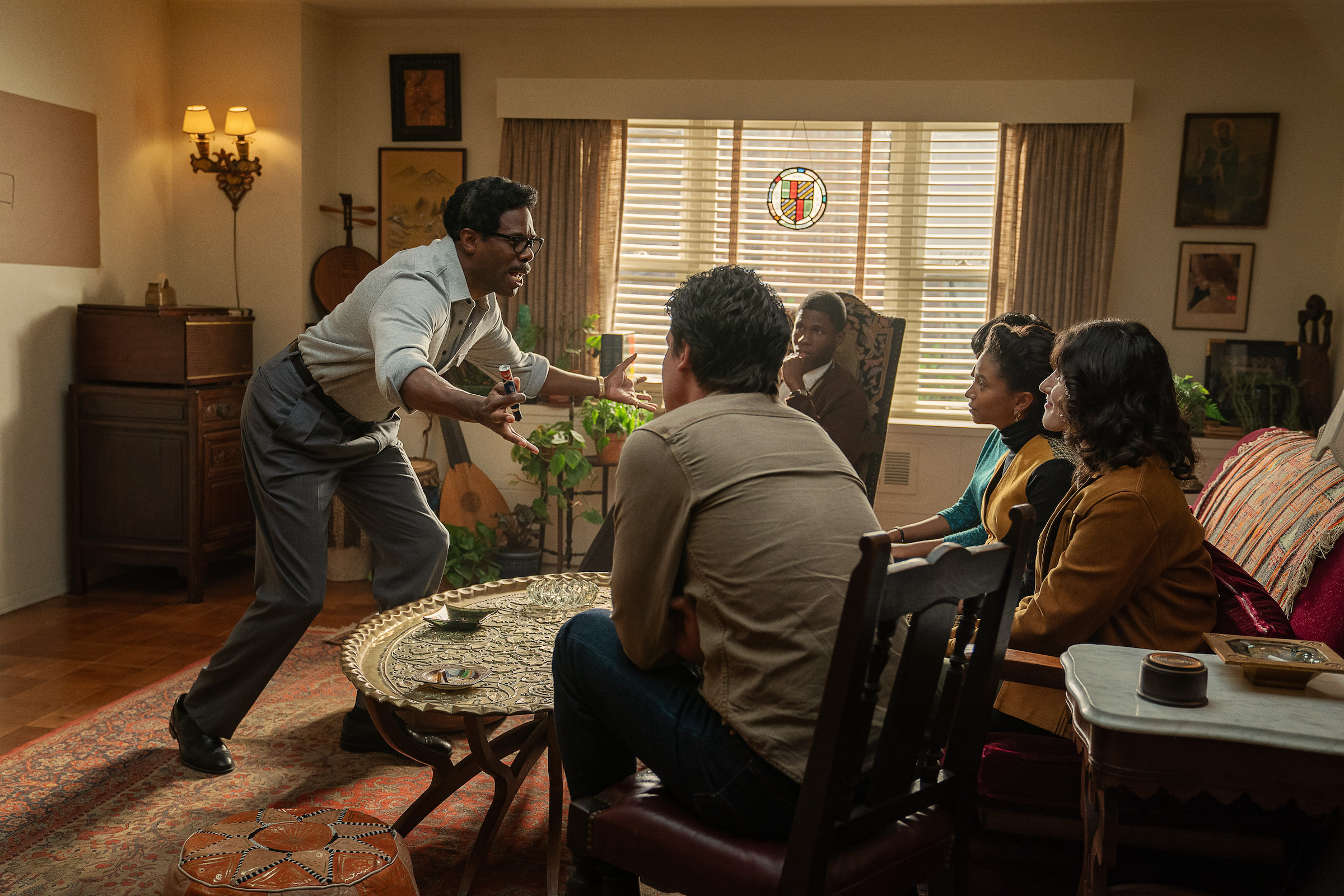
“Rustin was a real genius,” Norton says. “Indeed, the slogan was a March for Jobs and Freedom, not just freedom. And he organized that march in about eight weeks. I don't think we've ever had a march to produce so much legislation.”
President John F. Kennedy gave a nationally televised address on civil rights in June 1963, but activists thought it lacked teeth. They thought that members of the Southern segregationist Dixiecrat political party would dismantle any real change in Kennedy’s proposed legislation come fall.
That set the clock ticking, leaving Rustin and his legion of volunteers with two months to coordinate the march, which took place on Aug. 28, 1963. It set the stage for momentous change: the 1964 Civil Rights Act, the 1965 Voting Rights Act, and the 1968 Fair Housing Act.
“The march was the first time the civil rights movement was nationalized,” Ladner says. “Prior to then, we in the South were laboring in the vineyard, pretty much cut off from most of the news service. But the march nationalized the struggle. It gave ownership to all Americans. Everyone who was there felt that it was part of their struggle, too.”
In the movie, Rustin sends the Ladner sisters to wealthy areas of New York to tell their stories and raise funds to bus people to the march. “I’d like to share with you what it was like growing up in Hattiesburg,” Mississippi, Joyce tells a roomful of rich white women. “Regardless of how smart you were, you were told that your dreams were never gonna happen. Because of the color of your skin.”
Norton, in the meantime, is dispatched to a meeting of Brooklyn union members, where she garners support. “As long as Negro workers are ill-housed and underpaid,” she says, “then the fate of all workers will be at peril.”
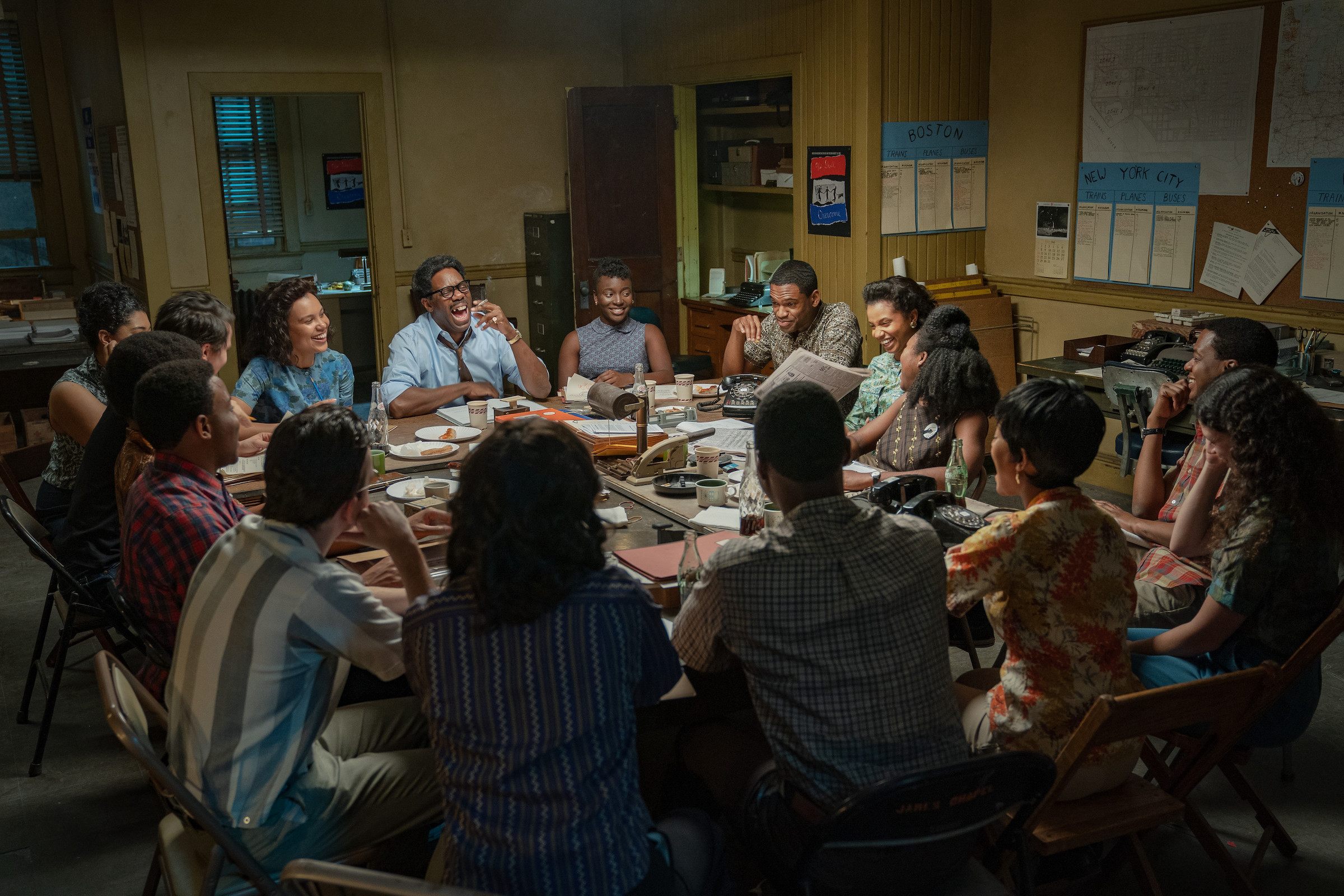
Together, Rustin and his team funded and organized 22,000 chartered buses, 40 Freedom Trains, and six chartered flights—plus a chartered plane of celebrities, including Harry Belafonte, Marlon Brando, James Baldwin, Charlton Heston, Diahann Carroll, Sammy Davis Jr., Lena Horne, and Burt Lancaster. (Not to mention the 27 portable water fountains, 22 first aid stations, and 292 latrines.)
Read More: The History Behind Rustin
And Rustin accomplished all of this in the face of pointed discrimination and homophobia, both within the movement and outside of it. Roy Wilkins of the NAACP had tried to prevent him from being associated with the march. Democratic congressman Adam Clayton Powell had previously threatened to falsely accuse Rustin of having an affair with Martin Luther King Jr. to stop them from protesting at the 1960 Democratic National Convention. And South Carolina senator Strom Thurmond called Ruston a “pervert” on national radio, exposing his 1953 arrest for sexual activity with men.
“Bayard had some steely nerves. But he was persecuted, really,” says Ladner. “And I don't know many people who would have been able to stand and stand tall and continue to work.”
“Sixty years ago, almost no one was outwardly gay,” she continues. “Everyone kept their sexuality private. But Bayard never hid his. He was who he was.”
More Must-Reads From TIME
- The 100 Most Influential People of 2024
- Coco Gauff Is Playing for Herself Now
- Scenes From Pro-Palestinian Encampments Across U.S. Universities
- 6 Compliments That Land Every Time
- If You're Dating Right Now , You're Brave: Column
- The AI That Could Heal a Divided Internet
- Fallout Is a Brilliant Model for the Future of Video Game Adaptations
- Want Weekly Recs on What to Watch, Read, and More? Sign Up for Worth Your Time
Contact us at letters@time.com